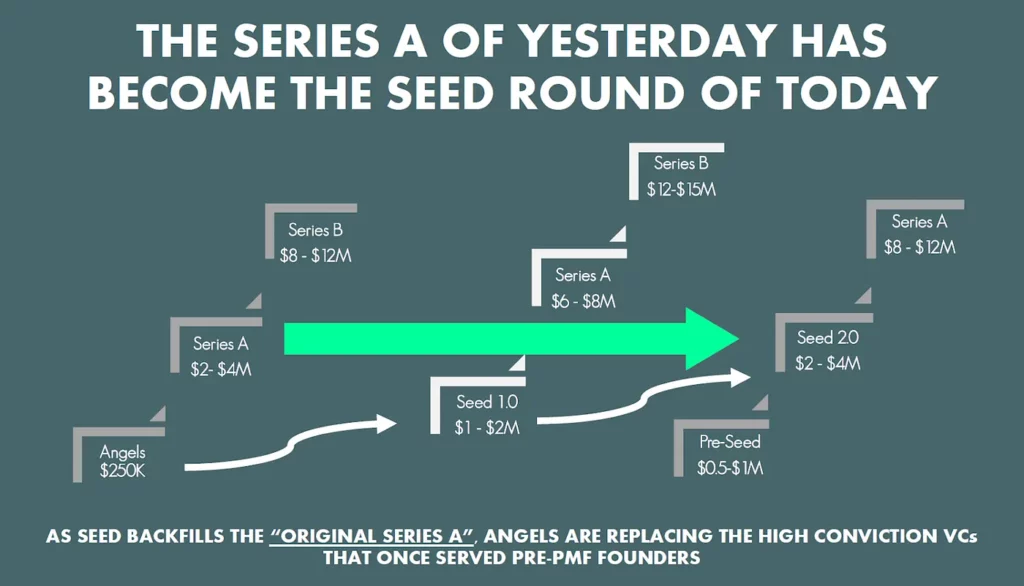Source Inspiration: Rick Zullo, Co-Founder & GP at Equal Ventures
In the venture capital realm, a transformative shift is occurring: Seed rounds are increasingly becoming the new Series A. This evolution, insightfully highlighted by Rick Zullo of Equal Ventures, reflects a broader trend in early-stage investing.
Historically, Series A rounds, often in the multimillion-dollar range, were the first significant institutional investments in startups. However, as the costs of launching companies have decreased, startups have been able to make substantial progress with just angel investments - traditionally the domain of friends, family, and enthusiasts. This shift has elevated the appeal and professionalism of angel and seed investing.

The success of early seed investors has led to their growth and maturity. Limited Partners (LPs), eager for returns, are now allocating more funds to these investors, escalating the typical seed investment amounts. Consequently, what used to be modest $100k checks have grown to multimillion-dollar investments. This change has pushed Series A investors to engage even later, as startups now achieve more before seeking Series A funding.
Recent years have witnessed a significant maturation of the seed stage. Seed funds, evolving from angel investing, are now taking board seats and focusing on more mature companies that require larger capital injections. This progression has led to the emergence of an even earlier stage - pre-seed investing.
Data from PitchBook supports this trend. The median seed pre-money valuation today mirrors what Series A rounds were valued at a decade ago, around $12 million. This parallels Series A valuations of $11 million in 2013.
This evolution in seed investing has implications for investment strategies. Series A investors from a decade ago operated in a more solitary and ownership-focused manner, contrasting the collaborative, high-velocity, and diversified approach of recent seed investors.
Understanding these market dynamics is crucial for venture capitalists. At Equal Ventures, the strategy involves emulating the "Original Series A" style rather than the "Micro VC" approach. This aligns with their firm's ethos and the market's current inclination towards this investment style at the seed stage.
In conclusion, the venture capital landscape is continuously evolving, with seed rounds increasingly resembling the traditional Series A. Embracing this change and adapting investment strategies accordingly is imperative for success in this dynamic environment.

